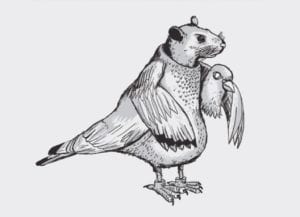
by Pigeon Patrol | Feb 16, 2020 | Bird Netting, Pigeon Control, Pigeon Droppings, Pigeon Patrol's Services, Pigeon Spikes, Pigeons in the News
Rat with wings in Dubai: Pigeons have become a nuisance in the city, leaving many residents exasperated.
These birds which have been breeding uncontrollably are messing up property with their droppings.
Building owners are having to hire pest-control firms to ward off these fast-breeding birds, they are like rat with wings.
Dr Elmahi El Tilib Gubran, pest control studies officer at Dubai Municipality’s Public Health Department, while describing pigeons as a “serious” problem, said it’s hard to put a figure to their numbers in Dubai, where it is illegal to cull pigeons.
Serious problems
“They cause serious problems on structures and are a real nuisance to get rid of,” said Dr Gubran, who added that the municipality traps them and gives them to a falcon hospital as feed.
With a plentiful supply of food, water and nesting perches, the city’s pigeon population has exploded in recent years. The problem prevails across the emirate, right from the residential districts of Karama, Bur Dubai and Deira, to the five-star hotels and industrial buildings in Jebel Ali and Jumeirah.
To deal with the problem, pest-control films have introduced a number of measures – from installing anti-roosting spikes on building tops, to the use of PVC (poly-vinyl chloride) netting and flying falcons to scare them away.
Pigeon droppings have been known to carry disease causing germs (see box on left). The droppings are acidic and can eat away at tar-based roofing, damage machinery, air conditioning systems and car paint work.
XPRESS went out with a team from Trap Pest Control, which uses nets and spikes for clients in the industrial areas of Jebel Ali as well as palaces.
Amin Jarrar, who runs the company, said: “We get calls from companies all the time asking to use our service. We don’t kill the pigeons because that is illegal, so all we do is move them on.”
One reason pigeons are widespread in places like Deira, Bur Dubai and Karama is that landlords are unwilling to invest in preventive measures, he said. “In Dubai, many tenants as well as property owners are coming and going all the time, so to invest in something like this is not appealing for them.”
Netting costs Dh75 per square metre and a metre of spikes costs Dh75. With spikes, the protruding pins make it impossible for pigeons to land, encouraging them to go elsewhere without them getting hurt.
Other pest-control companies treat problem areas with anti-pigeon spray that wards off the birds without harming them or other animals for up to a year after treatment.
While fake hawks and falcons are used in some UK cities to scare off pigeons, a Dubai company is using real falcons to do the job.
Al Hurr Falconry, based in Nad Al Sheba, uses 21 peregrine falcons – of which 14 constantly patrol the air in places like Jumeirah, while seven are used for breeding.
Battle in the air
David Stead, managing director of Al Hurr, describes the “battle” with pigeons as a “war of attrition”. Since his company was set up seven years ago, business has never been busier. “We get calls from people running five-star hotels to deal with pigeon droppings on their property,” said Stead.
“Pigeons are also one of the fastest birds in the air, and one of the few birds of prey that can catch them are falcons,” he said. “When pigeons see falcons, they go ballistic and scatter all over the place as they think they are going to be eaten. I’ve seen them almost fall to the ground in a desperate attempt to pick up speed and escape.”
Peregrine falcons can catch birds in the air and urban peregrines eat a lot of pigeons. Stead’s peregrine falcons, however, are trained to hover in the air for around a few minutes before returning to their handlers.
For their work to have a lasting effect, Stead and his team maintain a presence at the client’s buildings up to five days a week.
“It’s not a case of flying once and then leaving it,” he explained. “You have got to maintain an almost permanent presence around the building. You’ve got to make the pigeons think that the falcon lives in the area. That is the only way to get them to go away. ”
“Other countries have tried things like shooting the pigeons with air guns, but they alway return,” said Stead.
Methods to deal with them
- Draping a PVC net across overhanging areas to prevent the birds from flying to a specific location.
- Installing spikes on ledges or positions of walls and buildings to prevent pigeons from having a comfortable spot to rest on.
- Setting up brown coloured balls on a piece of string to fool the pigeons into thinking it is a falcon. (no photo)
How other nations dealt with the issue:
Switzerland:
Had experimented with a pigeon contraceptive pill, but it was found to be ineffective in trials
and often was also eaten by fertile birds from other species, making it difficult to specifically target pigeons.
United Kingdom:
Although pigeons are tolerated at Trafalgar Square, in London, as a tourist attraction elsewhere companies have hired snipers to shoot the birds off buildings with airguns. Specially licensed pest controllers can also use narcotic-laced drugs to “knock out” the birds before the pigeon’s necks are dislocated.
United States:
Use of plastic models of birds of prey is popular but the effect of scaring off pigeons has been found to work only for a short period of time.
Birds of a feather
- Pigeons are scared of peregrine falcons, who primarily eat birds they catch in the air.
- Between the 16th and 18th centuries pigeon droppings were a highly prized fertiliser and considered far more potent than farmyard manure – so guards had to be stationed near pigeon houses to stop thieves from stealing it. In 16th century England, it was the only known source of saltpetre, an ingredient of gunpowder. In Iran pigeon houses were set up and used simply as a source of fertiliser for melon crops and in France and Italy it was used to fertilise vineyards and hemp crops.
- Pigeons are gregarious and tend to be found in flocks of around twenty to thirty birds. Seeds and grains make up their diet.
- A pigeon nest is usually constructed with small twigs and located on covered building ledges, well-hidden from view. The male brings the nesting material to his mate, one piece at a time.
- Pigeons reproduce throughout the year and can raise four or five broods annually.
- Pigeons can hear sounds at much lower frequencies than humans, such as distant thunderstorms and even far-away volcanoes, which may explain why pigeons sometimes fly away for no apparent reason.
- Pigeons can fly up to 40 or 50 miles per hour and may travel as far as 600 miles a day. They can detect the Earth’s magnetic fields, which, along with the ability to tell direction by sun, seems to help them find their way home.
Source
At Pigeon Patrol, we manufacture and offer a variety of bird deterrents, ranging from Ultra-flex Bird Spikes with UV protection, Bird Netting, 4-S Gel and the best Ultrasonic and audible sound devices on the market today.
Contact us at 1- 877– 4– NO-BIRD, (604) 585-9279 or visit our website at www.pigeonpatrol.ca
Bird Gone, Pigeon Gone, Seagull Gone, Pigeon issue, pigeon spikes, 1-877-4NO-BIRD, 4-S Gel, Bird Control, Pigeon Control, bird repellent, Bird Spikes, sonic bird repellent, stainless steel bird spikes, bird spikes Vancouver, Ultra Sonic Bird Control, Bird Netting, Plastic Bird Spikes, Canada bird spike deterrents, Pigeon Pests, B Gone Pigeon, Pigeon Patrol, pest controller, pest control operator, pest control technician, Pigeon Control Products, humane pigeon spikes, pigeon deterrents, pigeon traps, Pigeon repellents, Sound & Laser Deterrents, wildlife control, raccoon, skunk, squirrel deterrent, De-Fence Spikes, Dragons Den, Canada bird spikes, Canada pigeon, pigeon control, pigeon patrol, pigeon. Kill pigeons, crow, starling
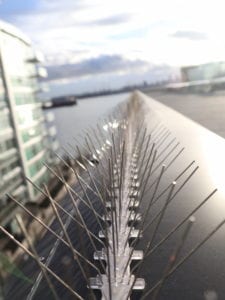
by Pigeon Patrol | Feb 16, 2020 | Bird Deterrent Products, Bird Netting, Bird Spikes, Pigeon Control, Pigeon Droppings, Pigeon Patrol's Services, Pigeon Spikes, UltraSonic Bird Control
How to get rid of pigeons?
How to get rid of pigeons? The Council has no policy to control or cull birds within the area.
It is generally acknowledged that reducing the population by culling can only have a short-term effect, and populations soon recover.
Food is the most important factor determining the size of any pigeon population, and the best known, long-term solution to pigeon problems is to restrict its availability.
Numbers can also be reduced by restricting roosting and nesting spaces. Replacing broken roof tiles and closing open/broken windows will stop pigeons gaining access to buildings. Specialist contractors use fine mist nets and small spikes placed on windows to discourage pigeons from roosting on buildings.
Specialist contractors can be employed to carry out appropriate action. Darlington Borough Council does not provide this service or any financial assistance to carry out the work.
What the law says about pigeons
Most birds and their nests are protected under the Wildlife and Countryside Act 1981.
The Act allows for the control of certain birds, including feral pigeons, by authorised persons using specified methods to prevent serious damage to agriculture, to preserve public health / air safety, or to conserve other wild birds.
The use of spring traps, poisons, certain types of nets, gassing and sticky substances that may entangle a bird are illegal. Approved methods include trapping or drugging followed by humane destruction and shooting.
It is an offence under the Criminal Damage Act 1971 to intentionally kill a racing pigeon.
Source

At Pigeon Patrol, we manufacture and offer a variety of bird deterrents, ranging from Ultra-flex Bird Spikes with UV protection, Bird Netting, 4-S Gel and the best Ultrasonic and audible sound devices on the market today to get rid of pigeons.
Contact us at 1- 877– 4– NO-BIRD, (604) 585-9279 or visit our website at www.pigeonpatrol.ca
Bird Gone, Pigeon Gone, Seagull Gone, Pigeon issue, pigeon spikes, 1-877-4NO-BIRD, 4-S Gel, Bird Control, Pigeon Control, bird repellent, Bird Spikes, sonic bird repellent, stainless steel bird spikes, bird spikes Vancouver, Ultra Sonic Bird Control, Bird Netting, Plastic Bird Spikes, Canada bird spike deterrents, Pigeon Pests, B Gone Pigeon, Pigeon Patrol, pest controller, pest control operator, pest control technician, Pigeon Control Products, humane pigeon spikes, pigeon deterrents, pigeon traps, Pigeon repellents, Sound & Laser Deterrents, wildlife control, raccoon, skunk, squirrel deterrent, De-Fence Spikes, Dragons Den, Canada bird spikes, Canada pigeon, pigeon control, pigeon patrol, pigeon. Kill pigeons, crow, starling

by Pigeon Patrol | Feb 16, 2020 | Bird Deterrent Products, Bird Netting, Bird Spikes, Pigeon Control, Pigeon Droppings, Pigeon Spikes, UltraSonic Bird Control
Do pigeons do any harm? – pigeons dropping are not only unsightly but are acidic and in large quantities can cause damage to buildings and machinery. Nesting material, droppings and feathers can also block gutters and air vents.
Public health – pigeons can carry diseases, some of which may do harm to people, for example if droppings contaminate food stuffs. As such their presence cannot be tolerated in and around food premises. They also carry mites which can cause skin disease and dust from their feathers can cause respiratory problems in confined spaces.
Accidents – pigeon droppings and food left down for pigeons can cause walkways and fire escapes on buildings to become slippery and dangerous. Startled flocks can take flight suddenly, causing hazards to motorists and pedestrians.
Other birds – large numbers of pigeons can force smaller birds away from feeding areas. The pigeons also spread disease to other birds, reducing their numbers.
Source
At Pigeon Patrol, we manufacture and offer a variety of bird deterrents, ranging from Ultra-flex Bird Spikes with UV protection, Bird Netting, 4-S Gel and the best Ultrasonic and audible sound devices on the market today.
Contact us at 1- 877– 4– NO-BIRD, (604) 585-9279 or visit our website at www.pigeonpatrol.ca
Bird Gone, Pigeon Gone, Seagull Gone, Pigeon issue, pigeon spikes, 1-877-4NO-BIRD, 4-S Gel, Bird Control, Pigeon Control, bird repellent, Bird Spikes, sonic bird repellent, stainless steel bird spikes, bird spikes Vancouver, Ultra Sonic Bird Control, Bird Netting, Plastic Bird Spikes, Canada bird spike deterrents, Pigeon Pests, B Gone Pigeon, Pigeon Patrol, pest controller, pest control operator, pest control technician, Pigeon Control Products, humane pigeon spikes, pigeon deterrents, pigeon traps, Pigeon repellents, Sound & Laser Deterrents, wildlife control, raccoon, skunk, squirrel deterrent, De-Fence Spikes, Dragons Den, Canada bird spikes, Canada pigeon, pigeon control, pigeon patrol, pigeon. Kill pigeons, crow, starling
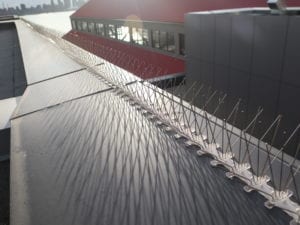
by Pigeon Patrol | Feb 16, 2020 | Animal Deterrent Products, Bird Deterrent Products, Bird Netting, Bird Spike, Pigeon Control, Pigeon Droppings, Pigeon Spikes, Pigeons in the News
Why are there so many of pigeons?
Feral pigeons are descended from wild rock doves and their populations have increased, especially in urban areas, in recent years.
Feral pigeons often form large flocks that roost on buildings, ledges and under bridges. They can often be found in loft spaces and empty buildings – anywhere that offers a small amount of shelter. Feral pigeons can breed all year round if food is in good supply and raise between three and six broods of two ‘squabs’ a year. Food is the most important factor determining the size of any pigeon population, and the best known, long term solutions to pigeon problems is to restrict its availability.
What do pigeons eat?
Their preferred diet is grain and seed, but they will scavenge food, take food from bird tables and eat household scraps and discarded takeaway foods.
Pigeons are wild birds capable of finding their own food. In a public area throwing food on to the ground can be considered as littering and will attract rats. Waste human food does not contain the essential vitamins the birds require and can lead to ill health and deformity.
Feeding pigeons in itself is not against the law but it is not necessary. It results in all year breeding that causes overcrowding. If feeding is reduced, their numbers will decline resulting in a smaller healthier flock with less need for drastic control measures.
Please do not feed the pigeons.
source
At Pigeon Patrol, we manufacture and offer a variety of bird deterrents, ranging from Ultra-flex Bird Spikes with UV protection, Bird Netting, 4-S Gel and the best Ultrasonic and audible sound

devices on the market today.
Contact us at 1- 877– 4– NO-BIRD, (604) 585-9279 or visit our website at www.pigeonpatrol.ca
Bird Gone, Pigeon Gone, Seagull Gone, Pigeon issue, pigeon spikes, 1-877-4NO-BIRD, 4-S Gel, Bird Control, Pigeon Control, bird repellent, Bird Spikes, sonic bird repellent, stainless steel bird spikes, bird spikes Vancouver, Ultra Sonic Bird Control, Bird Netting, Plastic Bird Spikes, Canada bird spike deterrents, Pigeon Pests, B Gone Pigeon, Pigeon Patrol, pest controller, pest control operator, pest control technician, Pigeon Control Products, humane pigeon spikes, pigeon deterrents, pigeon traps, Pigeon repellents, Sound & Laser Deterrents, wildlife control, raccoon, skunk, squirrel deterrent, De-Fence Spikes, Dragons Den, Canada bird spikes, Canada pigeon, pigeon control, pigeon patrol, pigeon. Kill pigeons, crow, starling
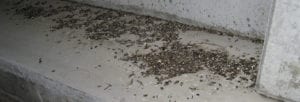
by Pigeon Patrol | Feb 16, 2020 | Animal Deterrent Products, Bird Deterrent Products, Bird Netting, Pigeon Droppings, Pigeon Patrol's Services, Pigeon Spikes, UltraSonic Bird Control
Pigeons problems have devastating effects on the heating and cooling components and indoor air quality of a commercial facility. Pigeon problems affect employees, maintenance personnel and potentially customers through the HVAC system.
HVAC Systems Make Perfect Pigeon Coups
Unfortunately, rooftop heating and cooling units are a perfect place for pigeons to nest. To seek shelter from the elements, pigeons typically enter air handler units through the fresh air intakes and build their nests within the HVAC unit. A single pair of pigeons can generate up to 18 new pigeons per year. Once a nest is established, pigeons are extremely territorial.
Indoor Air Quality
An HVAC system distributes the air throughout a facility. The bacteria, fungi and parasites that live and grow in pigeon droppings can carry and transmit any of 60 known diseases. Exposure to pigeon feces and other organic matter such as feathers carcasses and nesting material from the HVAC system may pose a considerable health threat to people who come in contact with them or inhale the airborne particles from them. Every precaution should be taken to ensure that building occupants and maintenance personnel are protected from pigeon feces.
Damage to HVAC Systems
As pigeons live in the air handler units they peck through filter material allowing unfiltered air and pigeon contaminants to freely enter the ventilation system. There are numerous damaging problems to an HVAC system from pigeon.
- Filter banks: Pigeons peck though filter banks allowing for unfiltered air and pigeon contaminants to be drawn into HVAC components and supply air ducts.
- Fan Blower: Pigeon debris builds within the fan blades decreasing airflow.
- Air conditioner coils: Pigeon debris compacts within air conditioner coils and clogs the drain pan.
- Insulation: Pigeons peck at insulation to create nesting material allowing for raw fiberglass fibers to enter the airstream.
How Do You Correct Pigeon Problems?
Hire a professional wildlife service or animal control contractor to relocate existing pigeons, and install devices to prevent future intrusions. Have the pigeon debris removed by a professional air duct cleaning contractor. Be sure to have the air duct cleaning contractor inspect the supply air ducts downstream of the HVAC unit.
Source
At Pigeon Patrol, we manufacture and offer a variety of bird deterrents, ranging from Ultra-flex Bird Spikes with UV protection, Bird Netting, 4-S Gel and the best Ultrasonic and audible sound devices on the market today.
Contact us at 1- 877– 4– NO-BIRD, (604) 585-9279 or visit our website at www.pigeonpatrol.ca
Bird Gone, Pigeon Gone, Seagull Gone, Pigeon issue, pigeon spikes, 1-877-4NO-BIRD, 4-S Gel, Bird Control, Pigeon Control, bird repellent, Bird Spikes, sonic bird repellent, stainless steel bird spikes, bird spikes Vancouver, Ultra Sonic Bird Control, Bird Netting, Plastic Bird Spikes, Canada bird spike deterrents, Pigeon Pests, B Gone Pigeon, Pigeon Patrol, pest controller, pest control operator, pest control technician, Pigeon Control Products, humane pigeon spikes, pigeon deterrents, pigeon traps, Pigeon repellents, Sound & Laser Deterrents, wildlife control, raccoon, skunk, squirrel deterrent, De-Fence Spikes, Dragons Den, Canada bird spikes, Canada pigeon, pigeon control, pigeon patrol, pigeon. Kill pigeons, crow, starling
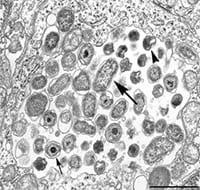
by Pigeon Patrol | Feb 16, 2020 | Bird Netting, Bird Spike, Pigeon Control, Pigeon Droppings, Pigeon Patrol's Services, Pigeon Spikes
Pigeons Carries harmful bacteria. Sampling of pigeons captured on the streets of Madrid has revealed the bacterial pathogens they carry. Researchers writing in BioMed Central’s open access journal Acta Veterinaria Scandinavica found two bugs that were highly prevalent in the bird population, Chlamydophila psittaci and Campylobacter jejuni, both of which cause illness in humans.
Fernando Esperón from the Animal Health Research Center, Madrid, Spain, worked with a team of researchers to analyse blood and enema samples taken from 118 pigeons caught using gun-propelled nets.
He said, “The present study demonstrates the extremely high prevalence of two zoonotic pathogens in feral pigeons in Madrid. At the same time, infection with these pathogens did not appear to be associated with any harmful clinical signs in the birds themselves. This leads to the hypothesis that pigeons act as asymptomatic reservoirs of  and Campylobacter jejuni which are harmful bacteria. These birds may therefore pose a public health risk to the human population.”
and Campylobacter jejuni which are harmful bacteria. These birds may therefore pose a public health risk to the human population.”
Chlamydophila psittaci was found in 52.6% of the pigeons captured, while Campylobacter jejuni was present in 69.1%. Although there have been few reports of disease transmission between pigeons and humans, it can occur by aerosols, direct contact or indirect contact through food and water contamination.
According to Esperón, “Thermophilic Campylobacter species are considered the primary pathogens responsible for acute diarrhea in the world. In fact, in many countries such as England and Wales, Canada, Australia and New Zealand Campylobacter jejuni infection causes more cases of acute diarrhea than infection by Salmonella species.”
Source
At Pigeon Patrol, we manufacture and offer a variety of bird deterrents, ranging from Ultra-flex Bird Spikes with UV protection, Bird Netting, 4-S Gel and the best Ultrasonic and audible sound devices on the market today.
Contact us at 1- 877– 4– NO-BIRD, (604) 585-9279 or visit our website at www.pigeonpatrol.ca
Bird Gone, Pigeon Gone, Seagull Gone, Pigeon issue, pigeon spikes, 1-877-4NO-BIRD, 4-S Gel, Bird Control, Pigeon Control, bird repellent, Bird Spikes, sonic bird repellent, stainless steel bird spikes, bird spikes Vancouver, Ultra Sonic Bird Control, Bird Netting, Plastic Bird Spikes, Canada bird spike deterrents, Pigeon Pests, B Gone Pigeon, Pigeon Patrol, pest controller, pest control operator, pest control technician, Pigeon Control Products, humane pigeon spikes, pigeon deterrents, pigeon traps, Pigeon repellents, Sound & Laser Deterrents, wildlife control, raccoon, skunk, squirrel deterrent, De-Fence Spikes, Dragons Den, Canada bird spikes, Canada pigeon, pigeon control, pigeon patrol, pigeon. Kill pigeons, crow, starling







